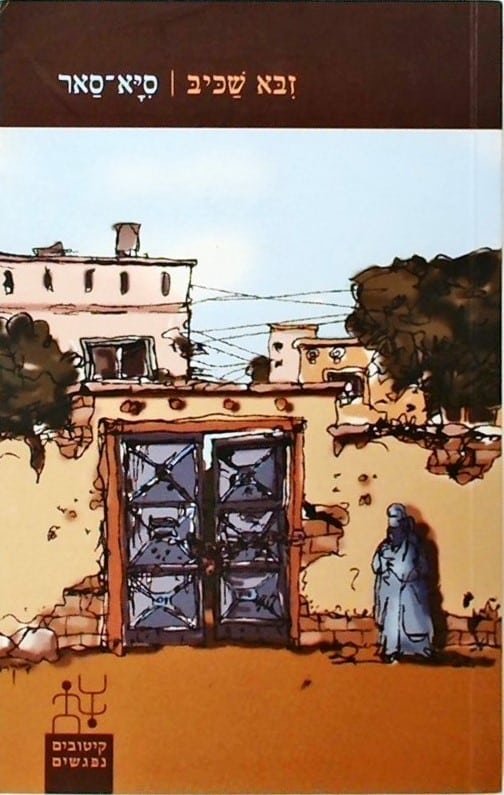For English review, please scroll down.
אפגניסטן, נמצאת בדרום מערב מרכז אסיה. היא גובלת עם לא פחות מ- 5 מדינות בינהן סין ואירן. בשנים האחרונות היא חזרה לכותרות בזכות משטר הטליבאן.
אפגניסטן היא יעד מועדף לפלישות וסבלה לא אחת מפלישות בגלל מיקומה במעבר בין אירופה והמזרח התיכון לבין המזרח הרחוק (דרך המשי).
לאחר שקיבלה עצמאות פלשה אליה ברית המועצות במטרה לשמר את המשטר קומוניסטי. למלחמה היו תוצאות איומות עבור העם האפגני, כמו לכל מלחמה. אבל הכיבוש הרוסי קרע את הארץ מבפנים והשאיר את המדינה מפוררת.
אתם יכולים להרחיב בקריאה על המלחמה ההיא בוויקי.
המצב ההיסטורי והנוכחי של אפגניסטן, מלחמות מבחוץ ומבפנים, הולידו בשנים האחרונות זרם ספרים פופולאריים שתורגמו לעברית ובינהם : "רודף העפיפונים", "אלף שמשות זוהרות" ו"מוכר הספרים מקאבול". טרם קראתי אותם, אם כי אמי קראה את "אלף שמשות זוהרות" והמליצה לי בחום.
לאחרונה קראתי את "סיא – סאר" מאת זבא שכיב.
סיא-סאר, היא שחורת הראש, אישה צעירה המחוייבת לעטות בורקה ביציאתה מהבית פן תסחרר את ראשי הגברים (על משקל שער באשה ערווה).
מדובר בסיפור ביוגרפי, של שירין- גול. סיפור פרטני אבל בו בעת מדובר בסיפורן של כלל הנשים האפגניות, שחוו את מלחמת אפגניסטן, מלחמת האזרחים, עליית הטאליבן וההצלה האמריקאים.
סיפור הישרדות שכולל בחובו, מלחמות, מוות, הפצצות, קריעה, רעב, אונס, סמים, מילוט, השפלה, רמיסה, קבצנות ועוד.
אין לי מושג מדוע נקרא הספר דווקא "סיא-סאר", המשקף אומנם חלק מחיי הנשים באפגניסטן, אבל לא את החלק המהותי בחיי הגיבורה, שירין גול.
הספר קשה מבחינה מהותית ולא רק ברמה התיאורית.
ברמה התיאורית, זו פעם שניה בתקופה האחרונה שיוצא לי לקרוא על מעללי הכובש הרוסי. כובש אכזר, חסר פשרות וחסר מוסריות.
מבחינה מהותית, מדובר בספר המעלה שאלות קשות על פמניזם, מקומן של הנשים בחברה שנמצאת במלחמה תמידית, על אפשרות הצלת מדינות העולם השלישי, על חופש ומתירנות, על הישרדות ועוד.
הרגשתי שהוא עמוס מידי. הרצון לדבוק במציאות ובהשתלשלות הדברים בעוכרי הספר. הרגשתי שחסרה בו יד עורך מיומנת שתחתוך אותו במקום הנכון.
בשלב מסויים הקורא נאטם לסבל והצער, דבר שאסור שיקרה בספר חשוב מעין זה. אני מניחה שזו הסיבה גם שהספר לא זכה לפרסום רחב יותר.
ובכל זאת הספר מומלץ. לפחות החלק הראשון (עד הבריחה לאירן) מרתק ושואב פנימה.
סיא-סאר: סיפורה של שירין-גול/ זבא שכיב
הוצאת כרמל, 2006, 272 עמ'
דירוג SIVI –
איכות אודיו –

סידרת קיטובים #
לדף הסידרה –
Afghanistan shares borders in the southwest of Central Asia with five neighboring countries, including China and Iran. Unfortunately, the country has been making headlines in recent years due to the return of the Taliban regime. Afghanistan has a long history of being invaded, owing to its strategic location along the Silk Road, which connects Europe, the Middle East, and the Far East.
Following its independence, Afghanistan was invaded by the Soviet Union to protect the communist regime. As with any war, the conflict devastated the Afghan people. The Russian occupation caused internal division and ultimately disintegrated the country. Additional information about this war can be found on Wikipedia.
There has been a surge of popular books translated into Hebrew in recent years, focusing on Afghanistan's historical and current situation and the wars from outside and inside the country. Notable titles include "The Kite Chaser," "A Thousand Shining Suns," and "The Bookseller of Kabul." Although my mother highly recommended "A Thousand Shining Suns," I have yet to read any of these books. However, I recently finished reading "Sia-Sar" by Zeba Shakib.
This is a biographical account of Shirin-Gol, a young black-haired woman who wears a burqa to avoid attracting unwanted attention from men. Her story is not unique to her but also represents the experiences of countless Afghan women who have lived through the horrors of war, Taliban rule, and the intervention of the American military. It is a tale of survival that encompasses bombings, death, hunger, rape, drug abuse, escape, humiliation, and desperation. While the book is titled "Sia-Sar," it only touches on one aspect of the lives of Afghan women and fails to capture the true essence of Shirin-Gol's inspiring journey.
This book presents challenges both in terms of substance and description. Descriptively, it is the second time I have read about the Russian conqueror's exploits, portraying a cruel, uncompromising, and immoral conqueror. However, the book raises thought-provoking questions about feminism, women's place in a constantly warring society, saving third-world countries, freedom, permissiveness, and survival.
I found the book too busy, lacking skilled editing to cut it in the right places. At a certain point, the reader may feel overwhelmed with suffering and sorrow, which shouldn't happen in a book of this kind. Perhaps this is why the book wasn't widely published.
Nonetheless, I still recommend this book, especially the first part (until the escape to Iran), which is fascinating and draws readers in.
לגלות עוד מהאתר Sivi's Books
Subscribe to get the latest posts sent to your email.

